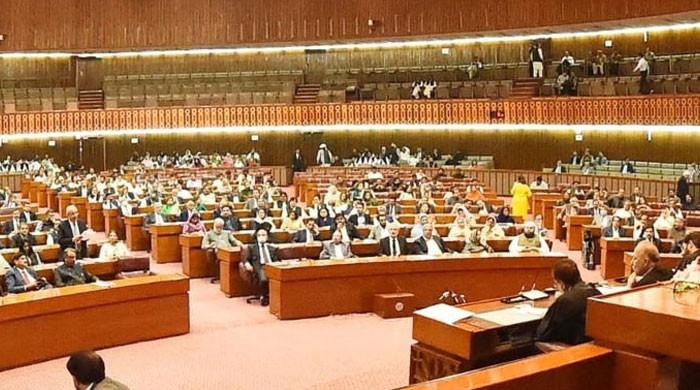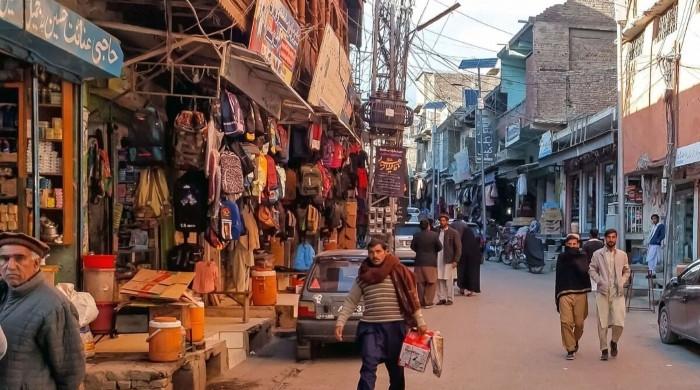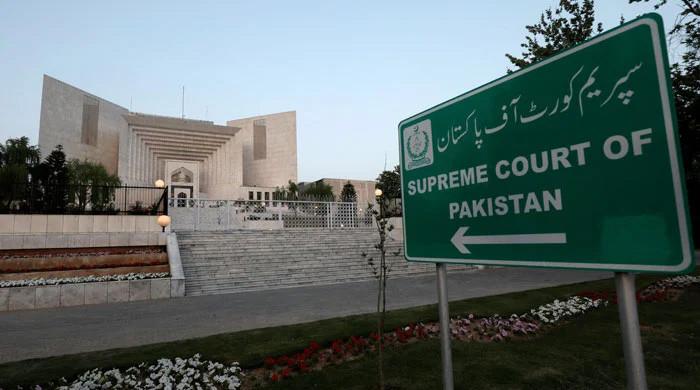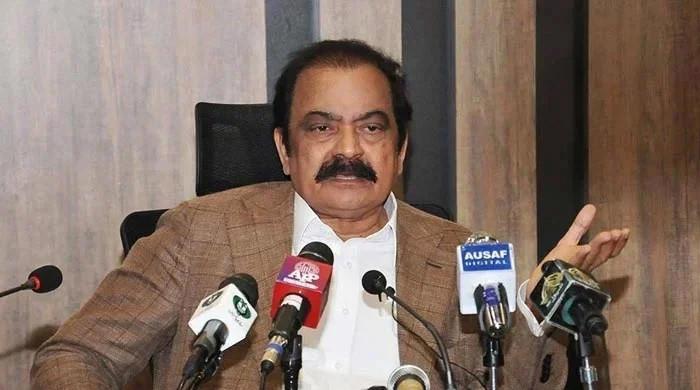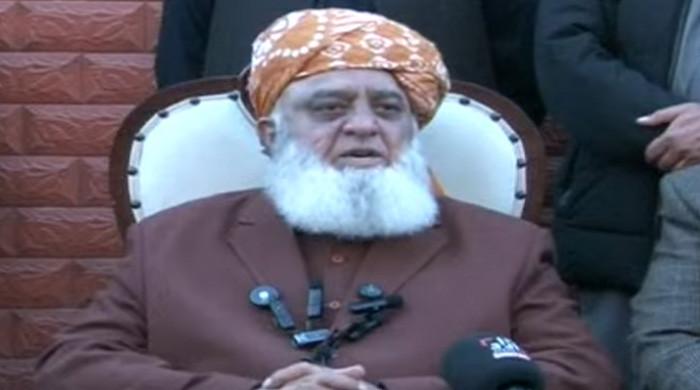At launch of poverty uplift initiative, PM Imran says difficult times 'over' for Pakistan
Ehsaas Amdan program will target 375 rural union councils in 23 of the poorest districts across Pakistan, provide assets to support income
February 21, 2020
ISLAMABAD: Prime Minister Imran Khan said on Friday that Pakistan's difficult days are now behind it and the country is on the right track.
The PM made the comment while launching the Rs15 billion 'Ehsaas Amdan Programme' in Layyah, Punjab today.
The Amdan (income) Programme is one of several programmes launched under the PTI government's Ehsaas initiative — a broad-based programme to lift the most vulnerable out of poverty.
The programme is aimed at creating respectable livelihood opportunities for those that are the most disadvantaged.
It involves giving away of small assets to those who live below the poverty line so that they can earn a living and lift themselves out of poverty.
Assets include livestock (goats, cows, buffaloes and poultry), agricultural inputs, Qingqi rickshaws, and inputs for small retail outlets and small enterprises.
In his address, the prime minister, speaking to an audience of the programme's beneficiaries, referred to the difficult economic conditions that continue to persist.
He explained that the government was constrained in providing relief because it had to return interest and payments due on past loans, or risk a default.
“If the country had defaulted, the price of everything would have doubled,” he explained.
Expressing optimism, the prime minister said that the country now seemed to be on the right track and noted that the rupee was not devaluing any further.
The premier said that the current account deficit has reduced and the stock market is performing better, adding that in the near future the nation will get more 'good news'.
Addressing the gathering, the prime minister said the government has launched the programme — which he described as "the first of its kind" in Pakistan — to alleviate the suffering of the poorest members of society.
“For women, we have decided that we will give them one cow, one buffalo and three goats so that they can run their household [with their produce],” the premier said.
He further said that every month, the government will give out interest-free loans to around 80,000 people.
Commenting on other measures to help the most vulnerable, he said: “The government has made 180 shelters so far and continue to build more of them."
He said that under the programme, the poor will be given funds to hire a lawyer for their cases.
“Six million people will be given health cards,” said the premier.
Speaking on the education system, the prime minister said that efforts are underway to implement a single-curriculum across the country’s institutions.
The PM lamented that whatever has happened in the country so far, led to the rich becoming richer while the poor continued to decline financially.
While lauding Punjab IGP Shoaib Dastgir, the PM said that he has directed the top cop to arrest the big fish first.
“Nations get destroyed when the influential people go to London and the smaller criminals are caught,” he said.
At the beginning of the ceremony, the prime minister formally inaugurated the programme by handing over various assets to beneficiaries.
Related: PM Imran says laying foundation for state of Madina
Dr Nishter shares details of programme
Earlier, Dr Sania Nishter, the main architect of the Ehsaas programme, shared the details of the project, which will commence in 375 rural union councils in 23 of the poorest districts across the four provinces of Pakistan.
The programme has set a target of providing around 200,000 assets to deserving households (60% to women and 30% to youth beneficiaries). The scale of the programme will be gradually enhanced based on results.
This programme is complimentary to Ehsaas Kafaalat, operations of which commenced on January 31, 2020 and through which the government will provide cash stipends of Rs2,000 to around seven million most deserving women by end of the year.
Poverty Score Card survey
Beneficiaries of both the Kafaalat Programme and the Ehsaas Amdan Programme have been shortlisted through a survey using the Poverty Score Card, so that only the most deserving benefit from them.
The Pakistan Poverty Alleviation Fund (PPAF), which is an organization attached to the Poverty Alleviation and Social Safety Division, is the lead implementing agency for the Ehsaas Amdan Programme, and is working through partner organizations that have a strong presence in the selected districts.
Community procurement processes have been established by the PPAF to ensure transparency and accountability in the identification, selection and procurement of all assets and/or vocational skills training.
140,000 government employees were beneficiaries of BISP, reveals Sania Nishtar
Those beneficiaries that require vocational training are supported to attend courses offered by certified technical training institutes. Training on asset utilization and business planning are also provided to eligible household members to help them turn the asset into an economically productive enterprise.
Asset recipient households are also supported to access the Ehsaas interest-free loan window if it is available in their area, and if they believe they require additional financing for business enhancement.
Beneficiaries are identified through a community engagement process in the 375 union councils and villages of 23 districts where this programme has been launched.
Districts in Punjab, where this programme is commencing, include Dera Ghazi Khan, Jhang and Layyah.
In Khyber Pakhtunkhwa, there are 10 districts (Upper Kohistan, Lower Kohistan, Palas Kolai, Torghar, Batagram, Shangla, North Waziristan, South Waziristan, Dera Ismail Khan, Tank) which will benefit as part of the initial launch.
In Balochistan there are three districts: Jhal Magsi, Zhob, and Sherani.
In Sindh the districts include Badin, Thatta, Sujawal, Kashmore, Shikarpur, Tharparkar and Umerkot.
These districts were selected based on a special study which was conducted by the PPAF in which three parameters were taken into consideration: level of human development, level of poverty, and level of food insecurity.





